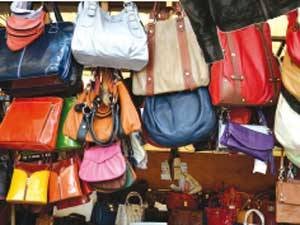There is nothing as free lunch
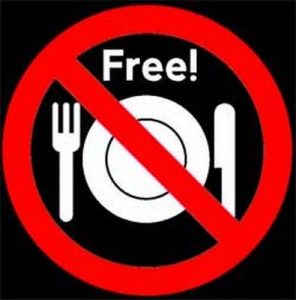 Nothing is free; even things that appear free often have to be paid for in the end. “There ain’t no such thing as a free lunch”. The maxim refers to the idea that it is impossible for a man to get something for nothing. The “free lunch” refers to the once upon a time, common practice followed in the bars and saloons in United States providing a “free lunch” to patrons who would purchase at least one drink. The variety of foods on offer were high in salt such as ham, cheese, salted nuts, salted fish, salted crackers, salted cashews etc. Those who ate them would end up buying a lot of beer. Naturally, foods high in sodium make you thirsty. The saloons/pubs/bars used this idea to fast sell their alcohol. Isn’t this cheating? Would you call it a great selling gimmick? This is a common practice even today by the bars and pubs of providing salted nuts, salted cashews, pakodas and papads as starters.
Nothing is free; even things that appear free often have to be paid for in the end. “There ain’t no such thing as a free lunch”. The maxim refers to the idea that it is impossible for a man to get something for nothing. The “free lunch” refers to the once upon a time, common practice followed in the bars and saloons in United States providing a “free lunch” to patrons who would purchase at least one drink. The variety of foods on offer were high in salt such as ham, cheese, salted nuts, salted fish, salted crackers, salted cashews etc. Those who ate them would end up buying a lot of beer. Naturally, foods high in sodium make you thirsty. The saloons/pubs/bars used this idea to fast sell their alcohol. Isn’t this cheating? Would you call it a great selling gimmick? This is a common practice even today by the bars and pubs of providing salted nuts, salted cashews, pakodas and papads as starters.
Rudyard Kipling wrote about free lunch in 1891 when he entered a saloon in San Francisco. There were pictures of men with hats on the back of their heads eating food at the counter. The beer bars those days offered free lunches to patrons who bought drinks. The cost of drinks was less than a rupee a day and they ate as much as they wanted. The free lunch concept spread from big cities to the whole nation. By 1930, big city bars around the United States were offering a free lunch to drink-buying customers. Some bars jacked the price of drinks up a few cents to cover the cost of the lunch but others absorbed the food cost and made their money by selling more drinks (volume). In 1934, the new mayor of New York, Fiorello La Guardia, said, “No more free lunch.” He wanted to put an end to the sleaze. The El Paso Herald published one article in Economics which was titled as “Economics in eight words” with acronym “TANSTAAFL” There Ain’t No Such Thing as a Free Lunch. The phrase became so catchy and caught attention of many readers and thinkers it continued in many articles those days from 1942 till 1947.
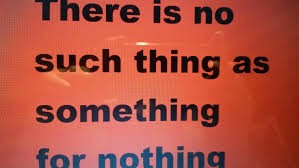 If some individuals or group gets something at no cost, somebody else ends up paying for it. If there appears to be no direct cost to any single individual, there is a social cost. Similarly, if somebody is getting benefit for “free” from a public good or service, remember someone else is paying the cost of producing these benefits. If you’re travelling without ticket on the local train, remember many lakhs of people are paying for the monthly pass and buying tickets. We don’t realize that major problem and reason why free riders often enjoy without paying is because the property rights are not clearly defined and imposed. There are many loopholes in law and order.
If some individuals or group gets something at no cost, somebody else ends up paying for it. If there appears to be no direct cost to any single individual, there is a social cost. Similarly, if somebody is getting benefit for “free” from a public good or service, remember someone else is paying the cost of producing these benefits. If you’re travelling without ticket on the local train, remember many lakhs of people are paying for the monthly pass and buying tickets. We don’t realize that major problem and reason why free riders often enjoy without paying is because the property rights are not clearly defined and imposed. There are many loopholes in law and order.
When stores offer some discounts – sometimes up to 50% and 60% discounts aimed at drawing customers into stores; in many cases, those bargains are a carefully engineered illusion. The common assumption is that retailers stock up on goods and then mark down the ones that don’t sell, taking a hit to their profits. But that isn’t typically how it plays out. Instead, big retailers work backward with their suppliers to set starting prices that they wish to pay for the unsold goods; after all, the markdowns will yield the profit margins they want. A lot of discounts are already priced into the product. That’s the reason we see much more stable margins.
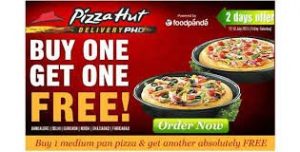 Same is the case is with travelling and touring packages. We find many discounted packages in rainy season. Travelers feel great to visit some enormous destinations in half the prices. In fact every service offered in the package is calculated backwardly. You end up paying for breakfast, lunch, even the parking, internet and Wi-Fi connections, transportation pick up and drop to the airport, parlor services – you name the service and it’s charged cleverly. Nothing comes free. The hotel room charges get fluctuated depending on the season and business. The slack seasons are already calculated in annual budgets and trickily priced.
Same is the case is with travelling and touring packages. We find many discounted packages in rainy season. Travelers feel great to visit some enormous destinations in half the prices. In fact every service offered in the package is calculated backwardly. You end up paying for breakfast, lunch, even the parking, internet and Wi-Fi connections, transportation pick up and drop to the airport, parlor services – you name the service and it’s charged cleverly. Nothing comes free. The hotel room charges get fluctuated depending on the season and business. The slack seasons are already calculated in annual budgets and trickily priced.
 The healthcare segment as well does not spear us from hidden charges. We are charged on anything and everything. The health care system is an unusual squander associated with its multi-payer private insurance system. The administrative costs in healthcare mounts due to the insurance system, including not only the marketing and utilization-control costs and the profits reaped by the insurance companies, but also the costs imposed on physicians, hospital maintenance, food and catering and other service providers by the complexity of the insurance system. The Insurance players hike the prices, which the health insurances buyers don’t understand while buying the insurance packages. Hospitals are the most powerful players in a health care system that has little or no price regulation especially in developing countries. Rising costs of drugs, medical equipment and other services, and fees from layers of middlemen, play a significant role in escalating hospital bills.
The healthcare segment as well does not spear us from hidden charges. We are charged on anything and everything. The health care system is an unusual squander associated with its multi-payer private insurance system. The administrative costs in healthcare mounts due to the insurance system, including not only the marketing and utilization-control costs and the profits reaped by the insurance companies, but also the costs imposed on physicians, hospital maintenance, food and catering and other service providers by the complexity of the insurance system. The Insurance players hike the prices, which the health insurances buyers don’t understand while buying the insurance packages. Hospitals are the most powerful players in a health care system that has little or no price regulation especially in developing countries. Rising costs of drugs, medical equipment and other services, and fees from layers of middlemen, play a significant role in escalating hospital bills.
The adage of TANSTAAFL initially was as “every choice you make has a next, best alternative that you could have chosen but didn’t.” That obvious opportunity is known as opportunity cost; that is, the price you paid for doing whatever it is you did was the opportunity you can no longer enjoy. Whether or not you are successful in life depends almost entirely on how well you manage your own, personal opportunity cost. What if Sam Walton hadn’t started Wal-Mart stores at 44 years old? What if Warren Buffett had listened to his father, and his mentor, Benjamin Graham, and not gone to work in the investment industry? What if J.R.D Tata hadn’t started Tata Airlines in 1937 which later became Air India? The opportunity cost of each of those decisions would have been overwhelming, in retrospect. That is the nature of life. You are the CEO of your own life, and your time here on Earth; you have to decide how to manage your own opportunity costs. You have to choose what you want be in life; how much money you want to make; how much you want to invest; whether you want to run your business empire or work for in an organization. Opportunity cost is all around you.
Let us understand this clearly that the vast majority of goods are scarce. There are a few non-scarce goods, which economists call “free goods.” air, sunlight and water are supposed to be free goods in most situations. Clean air is sometimes a free good. That is if you go to some pollution free zone like hilly area or a village. But to enjoy the clean air you need to spend money in travel and hotel booking. Water is a free good in many situations. It is clearly a free good at the river, the sea or ocean. However, when you are at the ocean, salt-free water is not a free good – that’s the catch. The fact that the vast majority of goods are scarce, not free, leads directly to trade offs. If we want more of something, we have to give up a little or more of something else. If you want more leisure time, you have to give up some income. If you want the latest, SUV in the market, then you would have to give up spending the money on something else or you would have to save less. We cannot get rid of tradeoffs in life.
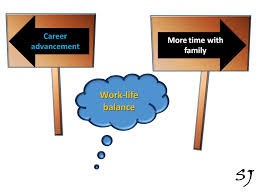 What about the richest people in the world? Do they face tradeoffs? Yes, they do. We can point to the standard tradeoffs with spending: if Azim Premji spends few crores of rupees on trying to improve schools in the Uttarakhand, then he needs to compromise a bit on improving schools in Rajasthan. Azim Premji Foundation has allotted about Rs.9000 crores to start 1300 schools across India. If the foundation spends more in one state, it has less to spend in another.
What about the richest people in the world? Do they face tradeoffs? Yes, they do. We can point to the standard tradeoffs with spending: if Azim Premji spends few crores of rupees on trying to improve schools in the Uttarakhand, then he needs to compromise a bit on improving schools in Rajasthan. Azim Premji Foundation has allotted about Rs.9000 crores to start 1300 schools across India. If the foundation spends more in one state, it has less to spend in another.
But there’s another way that Mr.Premji faces tradeoffs every day. He is simple to the core. He has transferred 8.6% of his stake in his company Wipro, worth about Rs 8,646 crore, to the Azim Premji Foundation. This is the biggest act of individual philanthropy in India.
Like everyone on earth, successful people also have the same 24 hours which they chose to use wisely. My dear friend, time is a scarce resource. We don’t realize this. Time is probably the scarcest resource we all have. When we start thinking about the value of our time, we realize that some activities that seem cheap are actually expensive. More colloquially, if we want more of something, some other thing must decrease in our life. Trade offs occur every day for many reasons. So friends, nothing comes free in life.













































